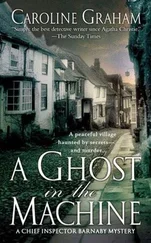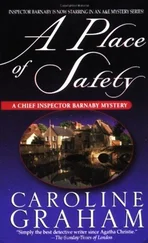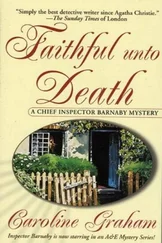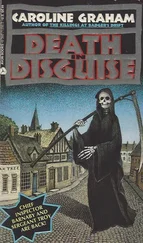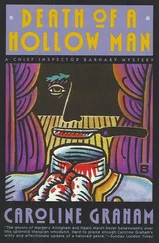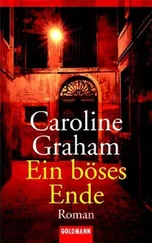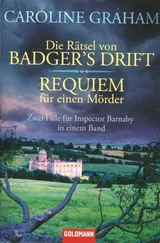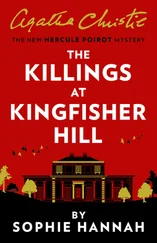‘Oh Pookums!’ she cried, and covered her face with her hands. ‘How could you even think such a thing of your poor Barbie?’
Relief repaired some of the sexual damage. Down in the forest something stirred. ‘Well ... what can it be, then? Can’t be too dwedful. Whisper it in Pookie’s ear.’
The lace expanded again in heartfelt preparation. ‘Well ... when I got my mink coat out of store for the Traces’ wedding the other day I left it on the back seat of the car ... just while I went shopping and ... Oh sweetheart ... someone stole it ...’ She burst into a flood of tears, then, as he did not speak, peeped coyly out between her fingers. This action, which he had once thought charming, now struck him as suitable only for a child of three. A nauseatingly winsome child at that.
‘What the hell do you want to wear a mink coat for in July?’
‘I wanted you to be proud of me.’
‘Have you been to the police?’
‘No ... I was in such a state ... I just drove around worrying ... and then I came home.’
‘You must do that tomorrow. Give them all the details. Fortunately it’s insured.’
‘Yes, darling ... I don’t suppose?’ - a serpentine arm twisted over his shoulder and around his neck - ‘Pookie will ever buy his naughty Barbie anovver one?’
Pookie’s stare gave nothing away. He was trying to recall Krystal’s remark; little Krystal who was always so pleased to see him; whose welcome was never anything but warm and friendly. What was it she had said? ‘I’d have to do it five hundred times to get a coat like that.’ He smiled calmly, almost forgivingly, at his wife and patted her smooth brown shoulder.
‘We’ll have to wait and see, won’t we?’
Barnaby sat in the incident room. He was in his shirt sleeves before an open window. The soft thud of tennis balls and an occasional reproachful cry floated in from the nearby recreation ground. He twirled his rotating cards for the hundredth time and called for some coffee.
‘And not in that mug with the blasted frog squatting in it.’
‘Oh. I thought he was rather sweet,’ said Policewoman Brierley, her lips twitching.
‘Well I didn’t.’
‘No, sir.’
Barnaby spun one more time, realizing that he knew all the information by heart, hoping that a fresh reading might show a piece of the puzzle in a different light, juxtapose seemingly disparate facts, reveal with a whisk of the conjuror’s cloth something which had hitherto been darkly concealed. At least with poor old Loveless/Lovejoy/Lessiter accounted for all afternoon there was one suspect fewer.
Barnaby toyed with the idea that the murderer might be fancy free, killing to protect the reputation of his or her partner. It sounded a bit far fetched but if the partner’s legal spouse held the purse strings it might be a possibility. Money had been behind many a killing. Money and sex. Interlocked. An eternal ampersand. And a motive for murder since murder began.
Two days had passed since the funeral and Barnaby had spent one of them discussing the death of Mrs Trace with all the members of the shooting party with the exception of the farm boy and neighbouring landowners whom he had left to Troy. The only new bit of information to arise from this was that, at the time of the shooting, Phyllis Cadell was on her way back to Tye House, having got bored by the whole proceedings. Henry had expressed surprise that she had decided to accompany them in the first place. Phyllis in her turn had assured Barnaby that Bella had been urging her for some time to come out with them. Phyllis had done a certain amount of shooting when she was younger and knew how to handle a gun but had simply lost the taste for it. ‘I regretted joining them almost as soon as things really got going. I stayed for a bit then decided to give up. I didn’t want to draw attention to myself so I just slipped back to the house.’
Another example of unusual behaviour. Barnaby’s mind turned back to his cards and Miss Simpson. On the day of her death she too had behaved ‘out of character’. Were the two deaths connected? There was no sensible logical reason for believing this. Yet he still couldn’t leave the idea alone. Barnaby read the photostat of the inquest report again although by now he knew it backwards. He remembered his first quick conviction that there was something odd, some fact buried in there that didn’t make sense, but by now the whole piece was so stale he wondered where that original impulse had sprung from. Certainly repeated readings had done nothing to support or elucidate this instinctive belief.
On the morning of the second day he had interviewed Norah Whiteley in the tactfully vacated office of the headmaster at the school where she worked. She was a thin woman with a bitter mouth, mistakenly wearing very youthful clothes. What she had to tell him was disturbing.
‘I left David because I was afraid. I could just about cope with his women. At least that meant he left me alone. But he was very violent. You never knew what would start him off. The dinner wasn’t right, the car wouldn’t start. I could put up with it for myself but when he started on Jamie ... I told him to go and when he wouldn’t I packed all his stuff, put it outside and had the locks changed. But even then I had to get a court order to stop him molesting us.’
‘Does he have access to the boy?’
‘No.’ There was a hard, unhappy, yet satisfied set to her lips. ‘He applied but I blocked it. I fought. I wouldn’t trust him to keep his fists to himself.’
‘And do you know if he has a ... liaison with someone at the moment?’
‘Bound to. David’s never without a woman for long. He’s sex mad.’
As she said this Barnaby had a vivid recollection of his first sight of the man sitting close to Katherine Lacey in the kitchen of Tye House. He had mistrusted his own quick assumption at that time. Shades of D.H. Lawrence. And those wonderful torrid grainy films of his childhood: Double Indemnity. The Postman always Rings Twice . It was all there: the beautiful bride, the inadequate husband, the lusty stud. So obvious, such a cliché. And yet, and yet ... How often the obvious turned out to be the truth.
But Barnaby saw no point in pretending that he had recognized any signs of guilt as the couple had become aware of his presence and broken apart. Whiteley had looked depressed and irritable, Katherine merely interested and concerned. And there was something so cool about the girl: an almost asexual purity in her beauty. He could imagine her body being offered up to its legal possessor when all the knots were properly tied, not without love necessarily, but perhaps with a moderate degree of fond attachment. It was harder to imagine her being swept away by a passion so strong it was worth risking a gilded future for.
David Whiteley was something else: amoral, self-interested and now known to be violent. Barnaby did not find it too difficult to visualize him in the role of murderer. But the death of Miss Simpson had been curiously nonviolent, almost subtle. Barnaby could not see the farm manager annotating Julius Caesar and he could never, with those brawny arms and legs, have climbed through the larder window. Nor could Barnaby see him committing murder to save any neck but his own.
Mechanically he gave the wheel another spin. He could not escape the comparison with Russian roulette. Five spins got you nowhere. The sixth could blow your mind. He drained the coffee, pleased to see nothing nearer to animate life in the bottom of the mug than a sweet dark primeval sludge. And then the phone rang.
Policewoman Brierley said, ‘I’ve got a Mrs Sweeney on the line, sir. She asked to speak to whoever was in charge of the inquiry about Miss Simpson.’
Читать дальше

